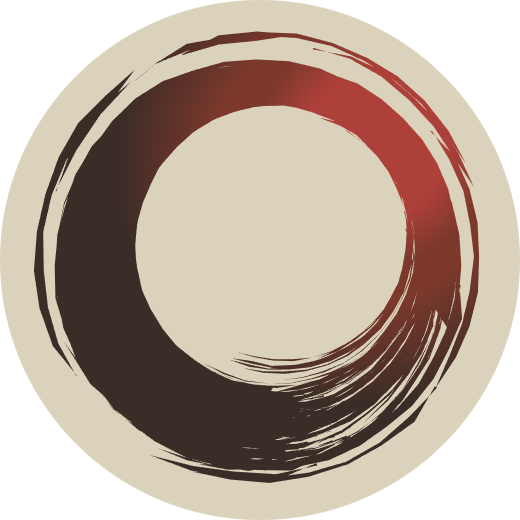Thoughts: Learning Music
So, lately I've been getting into learning music.
This is a big deal for me, as it's kind of the final stat in my attempt at a hobbyist-game-dev build, and I've never point any points into it.
Game dev has kinda been a meta-hobby for me for as long as I can remember. I've never actually developed any games (except this demo), but the drive to make games has been a guiding light that has fostered hobbies and interests intended to build up the skills I would need to accomplish the task; despite never having made games, these interests have very much shaped my whole life:
- Visual Art has led me to dabble in pixel art, photo editing, a touch of blender, and character design
- Programming led to my current profession (though it's web dev, not game dev, that I do for my day job)
- Math, which I knew I would need for physics / shaders / logic ultimately led me into getting an undergrad physics degree
- Writing led to a hobby in world building and story crafting
- UX/Interaction Design has led me to a hobby in exploring game design in board/video games and an interest in human interfaces (a lot of UX in web design too!)
Aside: I do want to point out that with such a varied set of interests and hobbies, I've never become particularly good at any of these things. Passable, but not good. Such is the curse of the generalist.
Music, however, never saw any progress. Every attempt at beginning an exploration into music failed -- I tried to learn guitar, piano multiple times, cello once, and LSDJ more times than I can count. None of it ever got off the ground.
-This changed recently when I discovered the following post on Mastodon (replicated and linked here for archival purposes):
Video by @vacuumbeef@layer8.space (link to original post)What you're seeing and hearing is a piece of software called Orca a 2D language/automata/thing that controls midi devices. In the video above you're actually hearing the logic powering the tetris game.
This was a life-changing moment for me. Even if I end up ultimately failing musically, my life has been altered forever by what may be the most inspiring piece of art I had ever seen.
Aside: I'm going to skip going into details about my full discovery of 100rabbits and all the inspiration and fascination I've discovered there, but holy shit
I had to try Orca, and was doing so within minutes. I spent evenings tinkering with this alien interface, rigging it up into Sunvox, and making some sounds. I was in heaven, and finally had a musical interface that felt intuitive to me.
I quickly realized, however, that I was lacking something. While I have a very weak mind's eye, I have a pretty strong mind's ear, and craved the ability to bend Orca to make the sounds I was crafting in my head. I could more or less do it, but the process was painful -- not because of Orca, but purely due to my own lack of understanding in music.
So, after a few days I put Orca down and began to experiment with other software. I already owned a cheap midi keyboard from past experiments and hooked it up to several open-source Digital Audio Workstations (DAWs) and synths to try to make some sounds.
I had some minor success with Sunvox and LMMS, but it was becoming very clear to me that to progress in the way that I wanted, I would need to learn music for real. Like, music theory, and at least one physical instrument. Orca had lit the flame, however, and I now finally had enough fuel to get music off the ground.
Aside: It has turned out that music is a very interesting hybrid hobby in that it offers the joys and benefits of both a buy stuff hobby (eg. collecting retro games) and a learn stuff hobby (eg. shader programming).
I'm at a point a few months into this, and I thought it would be good to journal below my current collection of musical tools and techniques:
Gear:
Software
I was pretty upset, initially at audio software. I still am, really.
I expected to be greeted with a pile of FOSS options and open source VSTs (Virtual Studio Technology), but instead it's a wasteland of sketchy sites, dead links, and subscriptions.
There's been some stuff that stuck out, however, and I eventually did fork out some money for a big DAW:
- Orca This is my darling that started it all. A 2D esoteric programming language to control midi devices. I will return to it once I've become more well versed in music theory.
-
Sunvox is an excellent freeware (not open
source) tracker software / synth that lets you do quite a bit and has
many many built-in sounds. I used it for hooking up my midi keyboards
and for making sound with Orca.
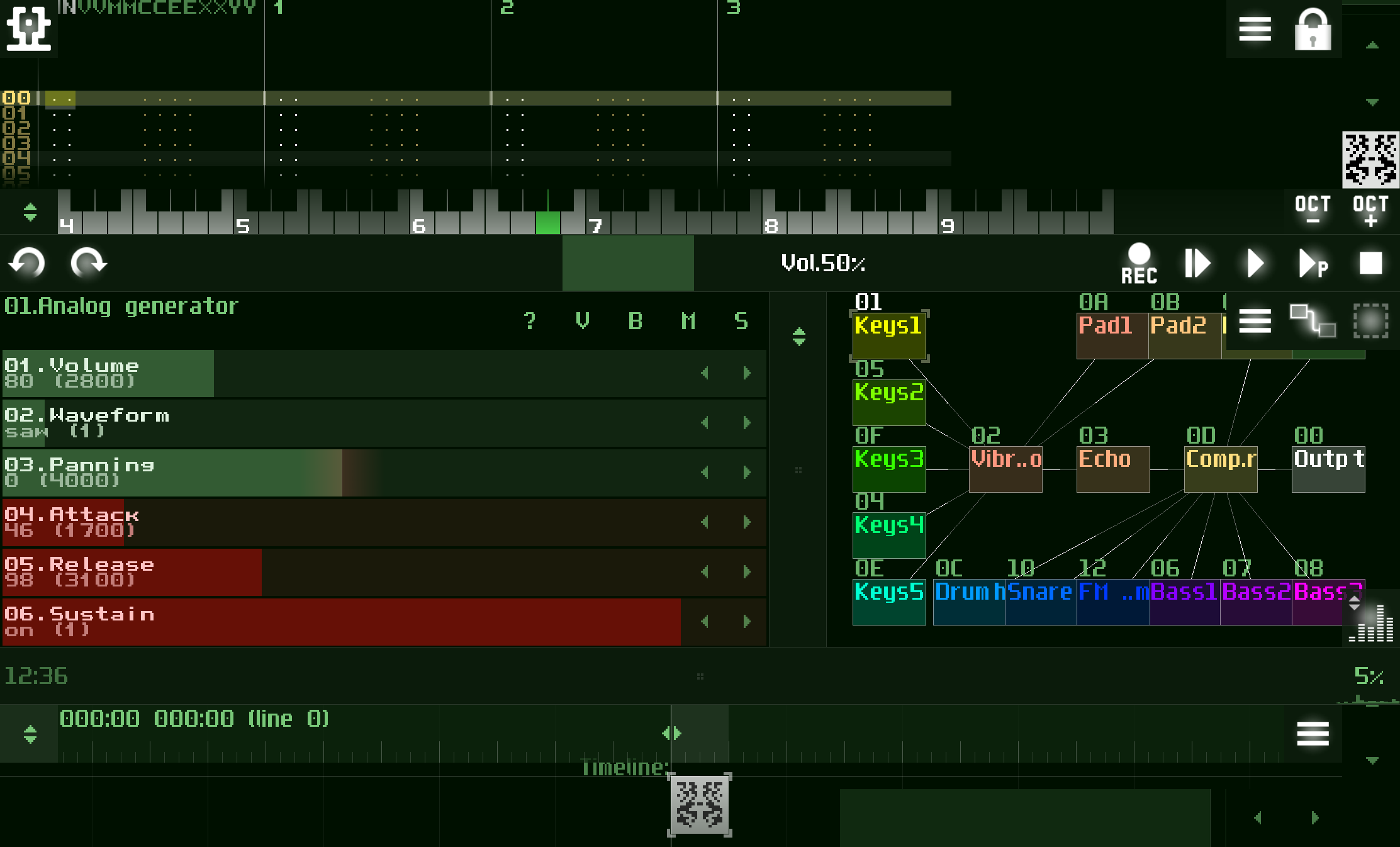
-
MuseScore (the software, not the website) has been an
invaluable tool for making sheet music, or converting sheet music into
MIDI files for other software to use.
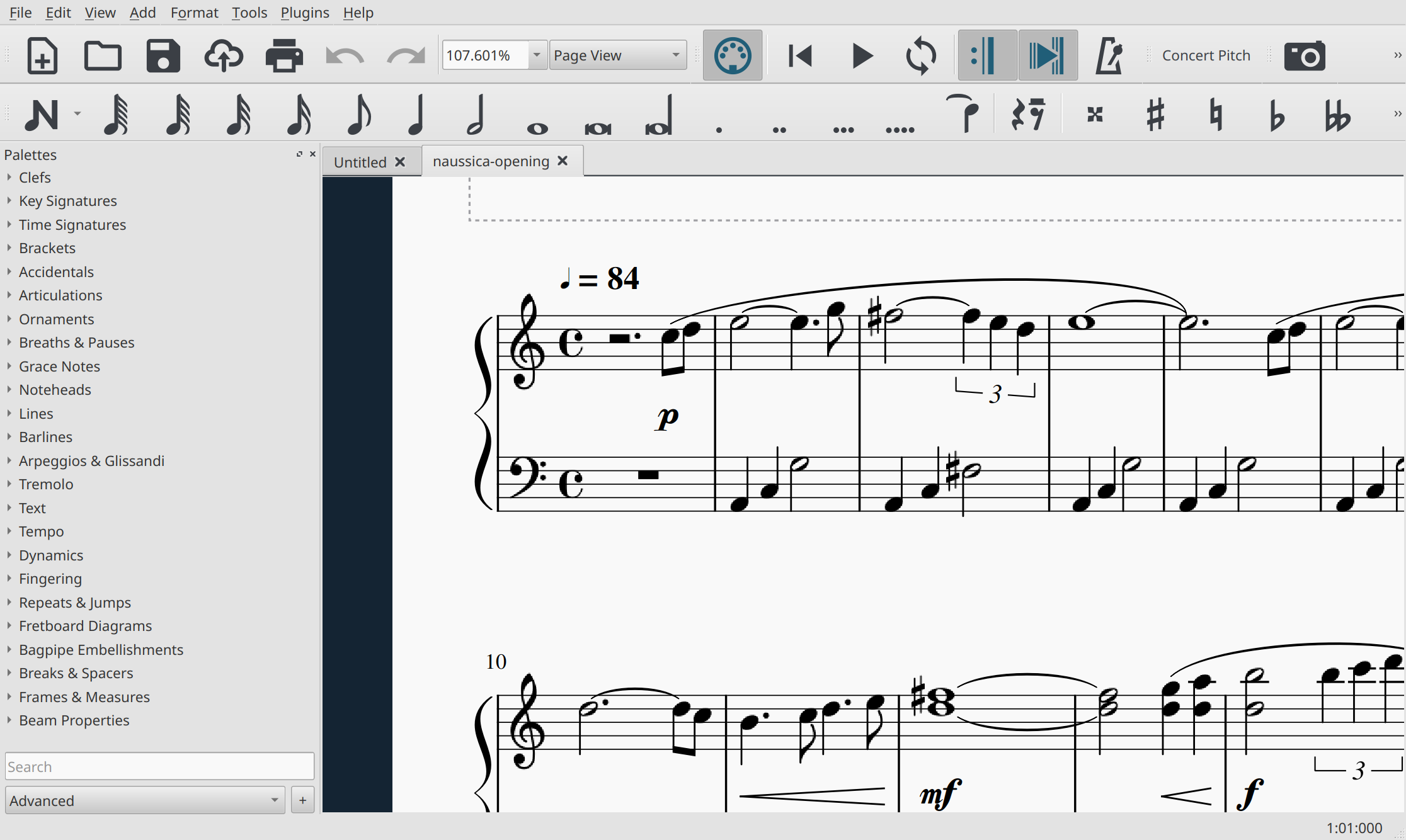
-
Synthesia is a software for all platforms that lets you
play a DDR-style game with midi files, showing you which buttons on the
keyboard to press. More importantly, it has a "sheet music" mode which
pauses and confirms when you get the notes right. It's been invaluable
in beginning to learn to play Piano.
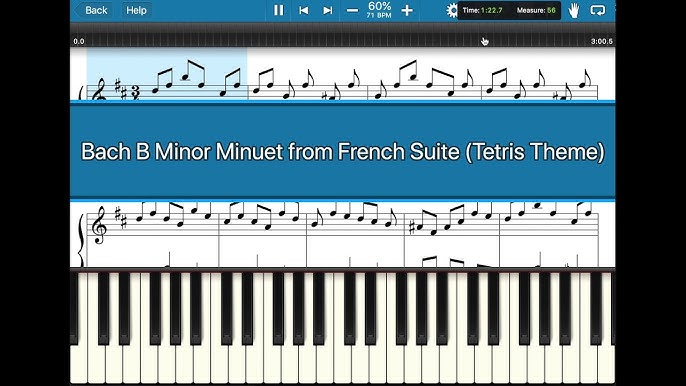
-
Bitwig Studio is the DAW I eventually paid for, and it
wasn't cheap! (I did get a summer discount and educational discount,
however). I played with maybe 5 different DAWs that work with Linux, and
I landed on Bitwig because it ships with LOTS of built-in instrumnets
and tools, and has the best UX I found between all the ones I tried.
Basically, it was the only software I managed make a song with without
needing to watch any tutorials.
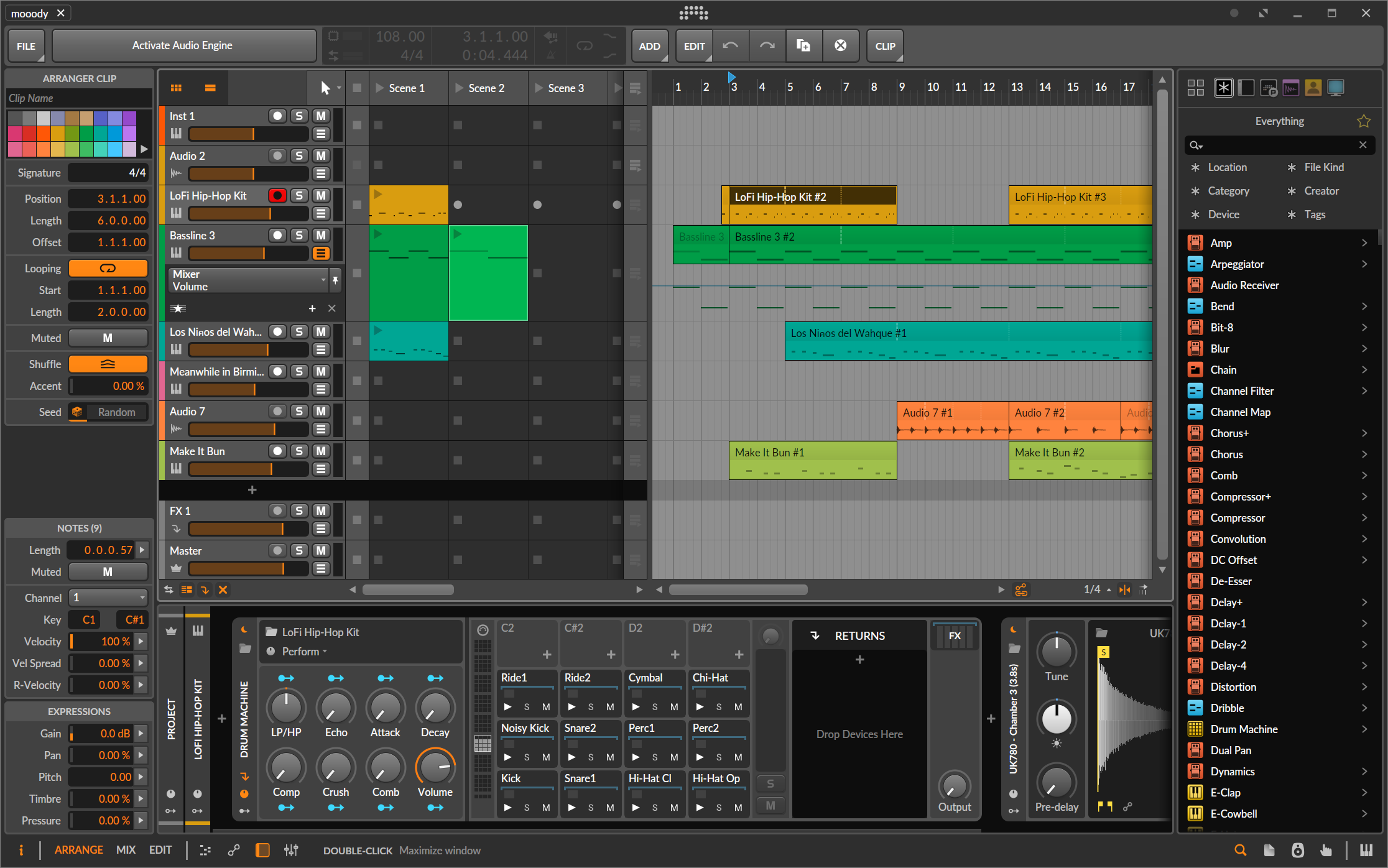
Midi Keyboards
I already had one of these and got another for portability. It might be surprising to some (it was to me) that these things can't make any sound on their own, and must instead be plugged into your computer or another device to make noises. I've found Sunvox to be a very useful getting-started tool, as it works on basically anything and lets you quickly make sounds.
-
Korg nanoKEY 2 is super portable, though the keys are
kinda shitty. I mostly use it for transcribing music to MuseScore

-
Novation Launchkey Mini MK3 is what I already owned and
now use when actually making music with my computer. It has a drum pad,
which is useful, and while I don't know what half of the other buttons
do it's been doing the job.
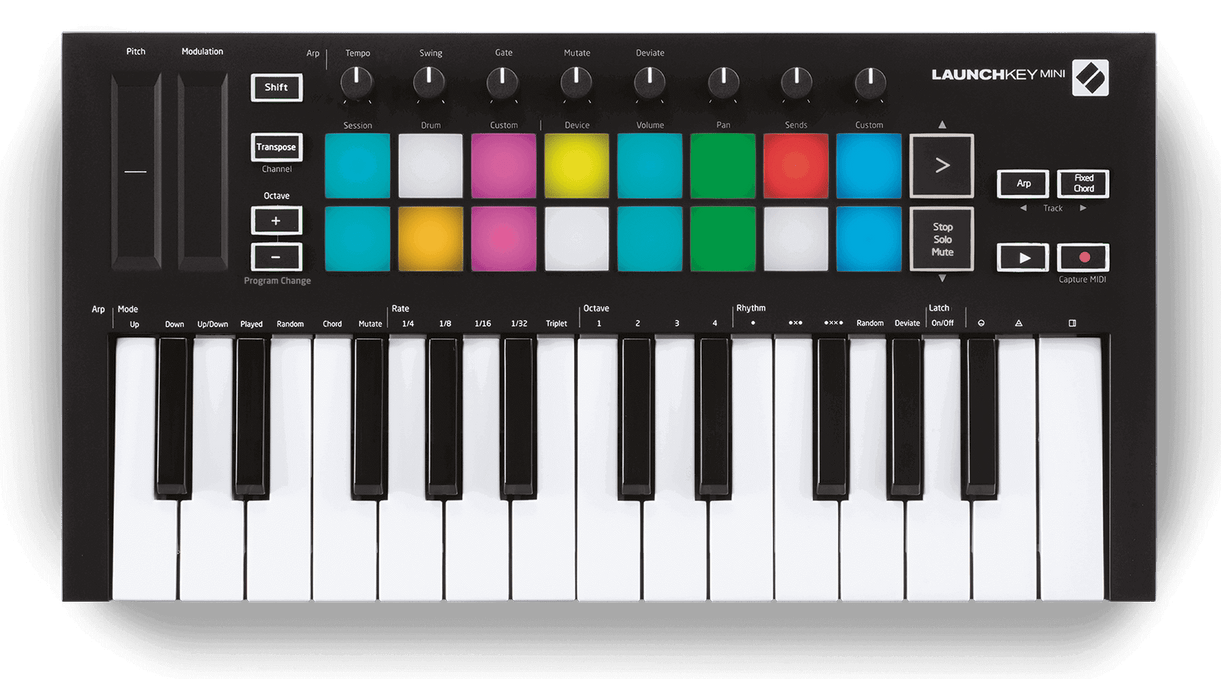
Digital Piano
This was a big purchase. I decided Piano would be the instrument to learn as it's the de-facto music theory tool. I rented a full 88-key digital piano for months as I've been learning, but my partner and I have liked having it in the living room so we committed to making it a permanent fixture.
The device I rented was the Roland FP-10 which was nice as
it had bluetooth midi and could hook up to an old iPad for playing songs on
Synthesia. I ended up purchasing an FP-30X because it has
the same weighted keys and also has several upgrades over the lower-end
device which should make it more versatile in the long run.
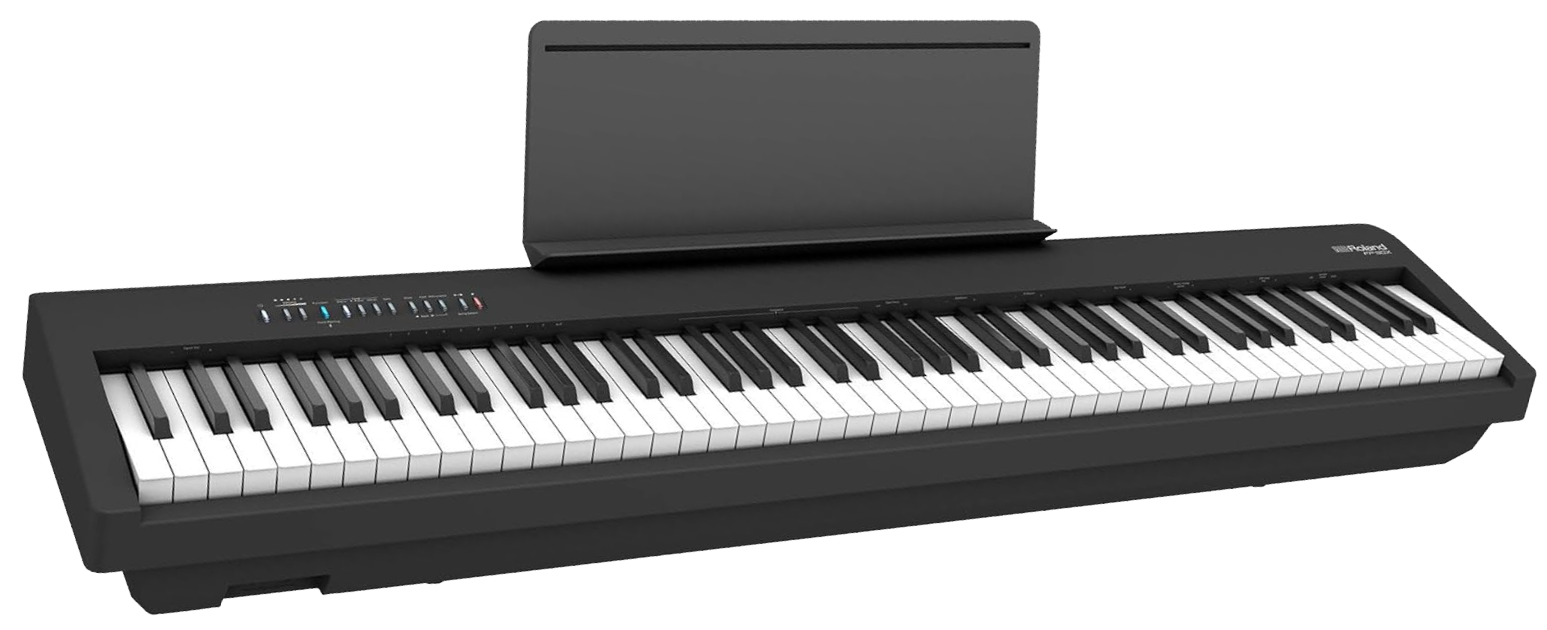
Other Devices
-
Teenage Engineering Pocket Operator 33 (KO) is a little
pocket-sized sampling device and sequencer that lets you record sounds
and play them back in patterns. It's impossibly fun to play with, and
I've even made a song or two with just this device. I've found it useful
to record some of Bitwig's sounds into it (especially drums)!
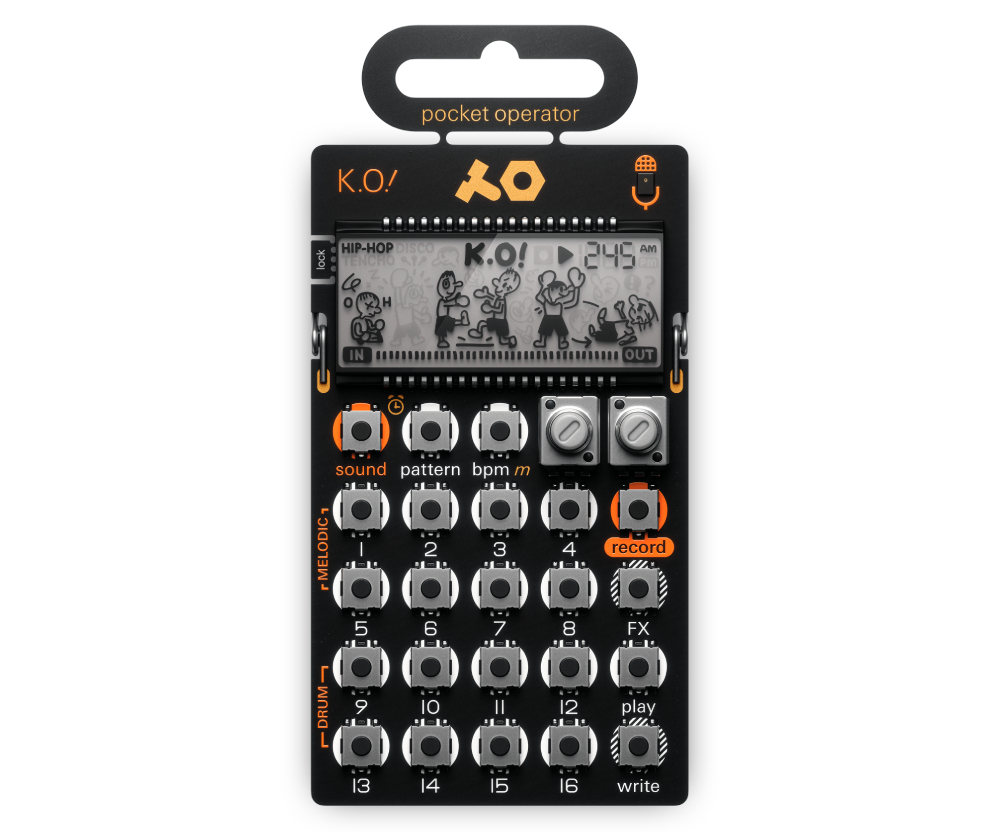
Learning Process
So I've experimented with a couple of processes for music learning. Firstly, I signed up for piano lessons. This has been a mixed bag, as I find I have trouble learning the same way kids do, and my past experience with music teachers is they'll treat you like a child.
I found an instructor near my house, however, that does private lessons targeted at older individuals, and even has a "casual" lesson plan where you pre-purchase a number of lessons and just contact them when you hit a wall. They've provided me with some structured learning material to take at my own pace, and the 2 lessons I've attended so far each correspond to a leap in understanding and ability.
As for learning new songs on the Piano -- I can't read music well (yet), so what I've been doing is finding sheet music for songs I want to learn (from Final Fantasy and Ghibli Films), then manually transcribing them into MuseScore. The process helps me find patterns in the playing process and will lead me to understanding any weird symbols in the sheet music (my most recent transcription taught me triplets, for instance).
MuseScore can export Midi files once you're done, and you can import those into Synthesia, which allows me to get direct feedback when trying to play a piece. After that it's just practicing a lot!
So far I can play 3-4 simple songs fairly well, and I'm going to be tackling some more intense songs soon!
In all of this I'm trying to remain realistic. I'm never going to be the next Nobuo Uematsu -- I'm in my mid-30s and have my attention split across many hobbies and interests, not to mention my job, family, and home maintenance. I do want to achieve a skill level where I could realistically produce the simple songs and melodies I dream up in my head, and maybe one day produce a small sound track for a small game all by myself.
There's a long, slow road ahead, but I'm excited about it.
For now, you can check out what I've managed to make on my Music page.
